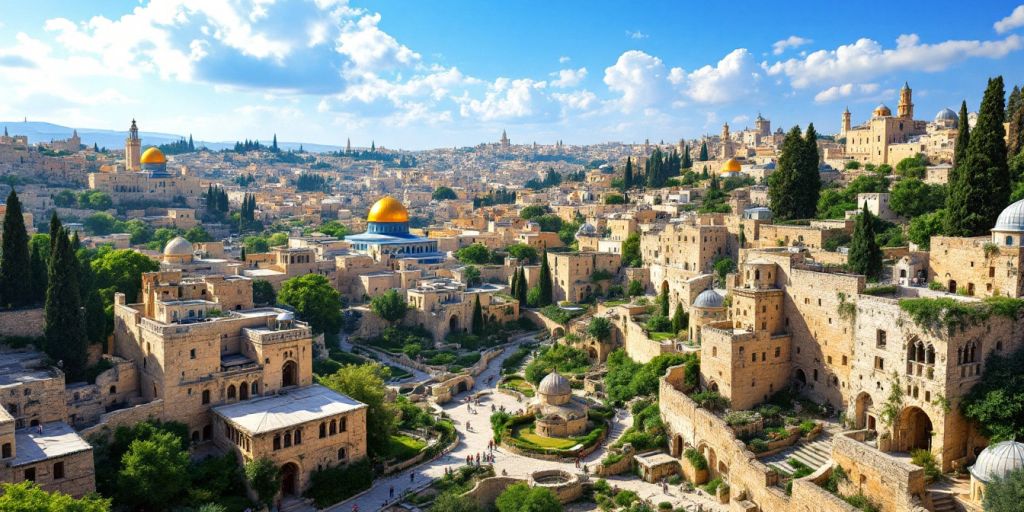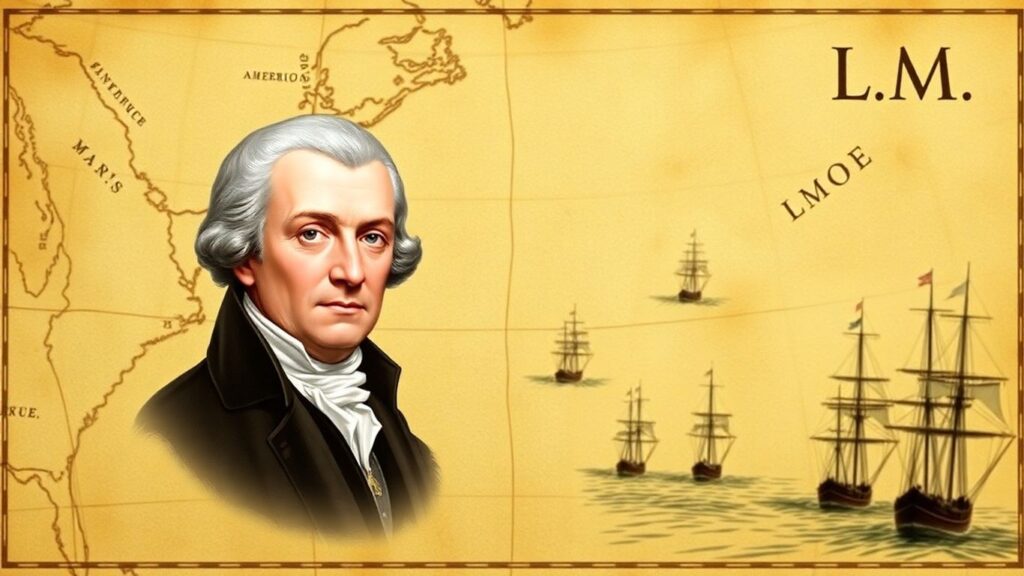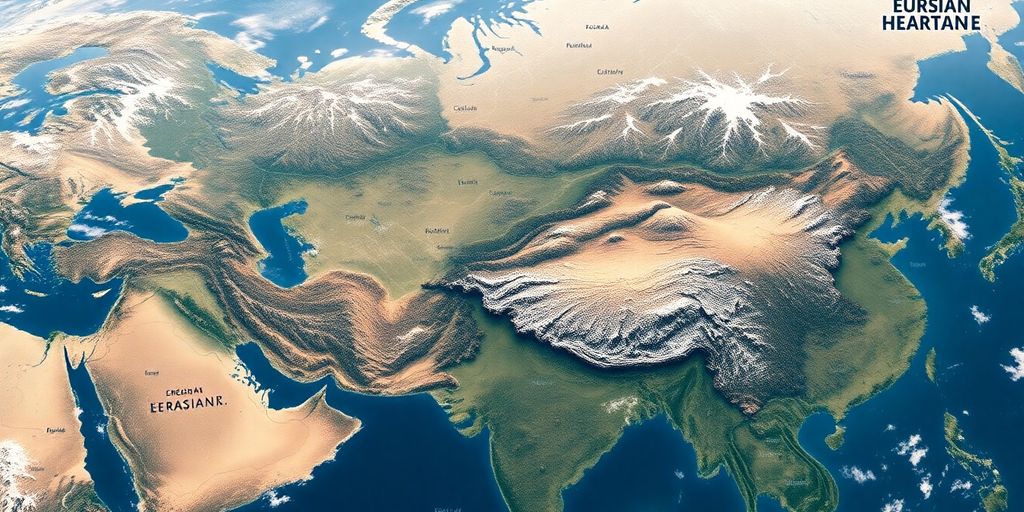What is Zionism, Where Did It Start, and What Are Its Goals?

Zionism is a movement that seeks to establish and support a Jewish homeland in Israel. It has a long history, starting in the late 19th century, and has evolved over time. This article explores the origins of Zionism, its key figures, and its impact on Israel and the world today.
Key Takeaways
- Zionism began in the late 1800s as a response to growing anti-Semitism in Europe.
- Theodor Herzl is often seen as the father of modern Zionism, organizing the first Zionist Congress in 1897.
- The Balfour Declaration of 1917 was a significant step in gaining international support for a Jewish state.
- Different types of Zionism exist, including political, cultural, and religious forms.
- Zionism continues to influence Israeli politics and has sparked debates about its implications for peace in the region.
The Origins of Zionism
Historical Context of Jewish Diaspora
The roots of Zionism can be traced back to the long history of the Jewish people living outside their homeland. For centuries, Jews faced persecution and discrimination, which led to a strong desire to return to their ancestral land. This longing was often expressed in prayers and cultural traditions, emphasizing a connection to Zion, a term that symbolizes Jerusalem and the Land of Israel.
Early Zionist Thinkers and Influences
In the late 19th century, several thinkers began to advocate for a Jewish homeland. Notable figures included Theodor Herzl, who wrote a pamphlet in 1896 called The Jewish State, which outlined the need for a Jewish nation. Other early advocates, like Nathan Birnbaum, played a crucial role in shaping the movement. They believed that Jews should have the right to self-determination in their own land.
First Zionist Congress
The first official gathering of Zionist leaders took place in 1897 in Basel, Switzerland. This event, known as the First Zionist Congress, marked a significant step in organizing the movement. Delegates discussed strategies for promoting Jewish immigration to Palestine and establishing a national home. The congress set the foundation for future efforts to create a Jewish state, emphasizing unity and action among Jews worldwide.
The early Zionist movement was not just about returning to a land; it was about creating a new identity and future for the Jewish people.
Summary
Zionism emerged from a complex mix of historical experiences, cultural connections, and the desire for self-determination. It was influenced by early thinkers and solidified through organized efforts like the First Zionist Congress. The movement aimed to address the challenges faced by Jews in the diaspora and to establish a homeland where they could thrive.
Key Figures in the Zionist Movement
Theodor Herzl’s Vision
Theodor Herzl is often called the father of modern Zionism. He believed that the Jewish people needed a homeland to escape persecution. Herzl organized the First Zionist Congress in 1897, which aimed to unite Jews worldwide to support the establishment of a Jewish state. His famous book, "The Jewish State," laid out his vision for a Jewish homeland in Palestine.
Chaim Weizmann’s Contributions
Chaim Weizmann was a key leader in the Zionist movement and played a significant role in gaining support for the Jewish cause. He was a scientist and diplomat who helped secure the Balfour Declaration in 1917, which expressed British support for a Jewish homeland in Palestine. Weizmann later became the first President of Israel, showing his lasting impact on the movement.
Golda Meir’s Leadership
Golda Meir was one of the first female leaders in the Zionist movement. She served as Israel’s Prime Minister from 1969 to 1974. Known as the "Iron Lady" of Israeli politics, she was a strong advocate for the Jewish state and worked tirelessly to gain international support. Her leadership during the Yom Kippur War in 1973 was particularly notable, as she made crucial decisions that shaped Israel’s future.
The contributions of these leaders were vital in shaping the course of Zionism and establishing the state of Israel. Their visions and actions continue to influence the movement today.
Zionism and the Establishment of Israel

Balfour Declaration
The Balfour Declaration of 1917 was a significant moment for Zionism. It was a letter from the British government expressing support for a "national home for the Jewish people" in Palestine. This declaration was crucial because it marked the first time a major power officially supported the idea of a Jewish state.
UN Partition Plan
In 1947, the UN Partition Plan proposed to divide Palestine into separate Jewish and Arab states. This plan aimed to address the growing tensions between Jewish and Arab communities. The Jewish leaders accepted the plan, but the Arab leaders rejected it, leading to increased conflict.
1948 War of Independence
The 1948 War of Independence followed the declaration of the State of Israel on May 14, 1948. This war was fought between the newly established state and neighboring Arab countries. Despite being outnumbered, Israel managed to survive and expand its territory. The war resulted in a significant number of Palestinian Arabs becoming refugees, which remains a contentious issue today.
The establishment of Israel was a pivotal moment in Jewish history, fulfilling a long-held dream of a national homeland.
Summary of Key Events
| Year | Event | Description |
|---|---|---|
| 1917 | Balfour Declaration | British support for a Jewish national home. |
| 1947 | UN Partition Plan | Proposal to divide Palestine into two states. |
| 1948 | War of Independence | Conflict following Israel’s declaration of statehood. |
Key Points
- The Balfour Declaration was a turning point for Zionism.
- The UN Partition Plan aimed to create peace but led to conflict.
- The 1948 War solidified Israel’s existence but created ongoing disputes.
This period marked the transition of Zionism from a movement seeking a homeland to the establishment of the State of Israel, shaping the future of the region and the Jewish people.
Different Strains of Zionism
Zionism is not a single idea but a collection of different political groups with various beliefs and methods. Each group has its own way of thinking about how to achieve the goals of Zionism. Here are some of the main types:
Political Zionism
- Focuses on establishing a Jewish state in Palestine.
- Advocates for political action and diplomacy to achieve its goals.
- Often associated with the Revisionist movement, which supports a strong military presence.
Cultural Zionism
- Emphasizes the importance of Jewish culture and identity.
- Aims to revive Hebrew language and Jewish traditions.
- Sees the establishment of a Jewish state as a way to promote cultural growth.
Religious Zionism
- Combines Jewish religious beliefs with the goals of Zionism.
- Views the return to Israel as a fulfillment of biblical prophecy.
- Supports the idea that Jews have a divine right to the land.
The differences within the mainstream Zionist groups lie primarily in their presentation and ethos, having adopted similar strategies to achieve their political goals.
These different strains of Zionism show how diverse the movement is. Each group contributes to the overall goal of establishing a Jewish homeland, but they do so in unique ways. Understanding these differences helps us see the complexity of Zionism today.
Contemporary Zionism
Zionism in Modern Israeli Politics
In today’s Israel, Zionism plays a crucial role in shaping political decisions. Various political parties represent different views on Zionism, including:
- Likud Party: Advocates for a strong Jewish state and control over disputed territories.
- Labor Party: Traditionally supports peace negotiations and a two-state solution.
- Meretz: Focuses on human rights and social justice within the framework of Zionism.
Global Jewish Support for Zionism
Around the world, many Jewish communities support Zionism, which can be seen in:
- Cultural events celebrating Jewish identity and heritage.
- Fundraising efforts for Israeli causes.
- Educational programs promoting understanding of Israel’s history and challenges.
Criticism and Controversies
Zionism faces criticism from various groups, including:
- Human rights organizations that argue it leads to the oppression of Palestinians.
- Some Jewish groups that believe it contradicts Jewish values of peace and justice.
- International critics who view it as a colonialist movement.
In the modern world, Zionism is not just a historical movement; it is a living ideology that continues to evolve and provoke debate.
This ongoing discussion reflects the diverse opinions within the Jewish community and beyond, highlighting the complexity of Zionism’s impact on global politics and society.
Zionism and International Relations

Zionism and Arab-Israeli Conflict
The relationship between Zionism and the Arab-Israeli conflict is complex. The establishment of Israel in 1948 led to significant tensions and conflicts with neighboring Arab states. Key points include:
- The 1948 War of Independence resulted in the displacement of many Palestinians.
- Ongoing disputes over land and rights have fueled decades of conflict.
- Various peace efforts have been made, but lasting solutions remain elusive.
Zionism and Western Allies
Zionism has historically sought support from Western nations. This relationship has evolved over time:
- Early support from Britain, especially during the Balfour Declaration in 1917.
- Post-World War II, the U.S. became a key ally, providing military and financial support.
- Ongoing diplomatic efforts to maintain strong ties with Western countries.
Zionism in Global Diplomacy
Zionism plays a significant role in international relations today. Its impact can be seen in:
- United Nations discussions regarding Israel and Palestine.
- Advocacy for Jewish rights and the recognition of Israel as a state.
- The influence of global Jewish communities in shaping public opinion and policy.
Zionism, in its origins, is secular and progressive in nature – it aspired to build a model society of justice, equality, and freedom, not a theocracy or an oppressive regime.
Overall, the interplay between Zionism and international relations continues to shape the political landscape in the Middle East and beyond.
Zionism’s Cultural and Social Impact
Zionism in Literature and Arts
Zionism has played a significant role in the revival of Jewish cultural life. It has inspired a new wave of literature, art, and music that reflects Jewish identity and experiences. Many artists and writers have drawn from their heritage to create works that resonate with both Jewish and global audiences. This cultural renaissance has helped to strengthen the connection between Jews and their history.
Educational Initiatives
Zionism has also led to the establishment of various educational programs aimed at promoting Hebrew language and culture. Some key initiatives include:
- Hebrew language schools that teach students the language and its literature.
- Cultural festivals celebrating Jewish traditions and arts.
- Community centers that offer classes and workshops in Hebrew and Jewish history.
Community Building
The Zionist movement has fostered a sense of community among Jews worldwide. This has been achieved through:
- Support networks for new immigrants to help them adjust to life in Israel.
- Cultural organizations that promote Jewish heritage and values.
- Youth movements that engage young people in Zionist ideals and activities.
Zionism has not only aimed to create a homeland but has also been a catalyst for a vibrant cultural revival, connecting Jews to their roots and each other.
Overall, the impact of Zionism on culture and society has been profound, leading to a renaissance of Jewish cultural life and a stronger sense of identity among Jews globally.
Conclusion
In summary, Zionism is a movement that aims to create a safe home for Jewish people in Israel. It started in the late 1800s when many Jews faced discrimination and wanted to return to their ancient homeland. While it has helped many Jews find a place to live, it has also caused conflict with Palestinians who feel pushed out. Today, Zionism means different things to different people, with some supporting it strongly and others opposing it. Understanding Zionism is important because it shapes the lives of many people and the future of the region.
Frequently Asked Questions
What is Zionism?
Zionism is a movement that aims to create a Jewish homeland in Israel. It started in the late 1800s when many Jews wanted to return to their historical land due to rising discrimination.
Who was Theodor Herzl?
Theodor Herzl was a key figure in the Zionist movement. He believed in establishing a Jewish state and organized the first Zionist Congress in 1897.
What was the Balfour Declaration?
The Balfour Declaration was a statement from the British government in 1917 that supported the idea of a Jewish homeland in Palestine.
What are different types of Zionism?
There are several types of Zionism, including political, cultural, and religious. Each type has its own beliefs about how to support the Jewish community in Israel.
How does Zionism affect modern Israel?
Zionism plays a big role in Israeli politics and society today. It influences how Israel interacts with other countries and how it sees its own identity.
What are some criticisms of Zionism?
Critics argue that Zionism can lead to discrimination against Palestinians and that it promotes a nationalist agenda that excludes non-Jews.








Responses